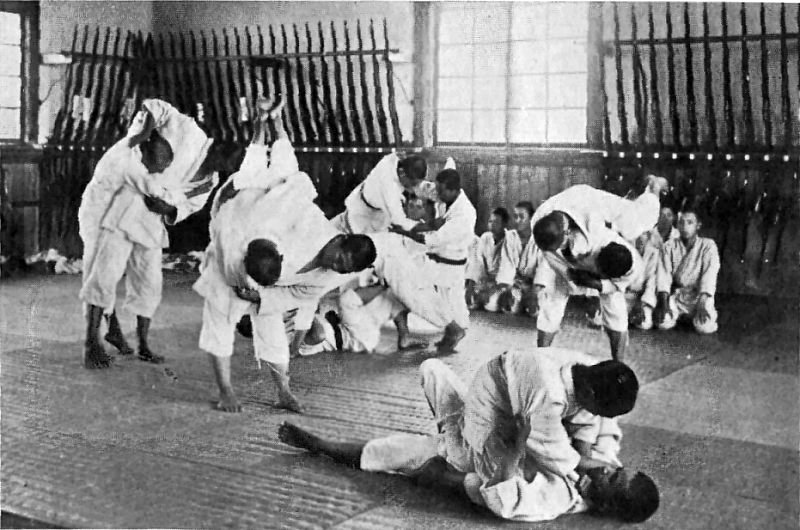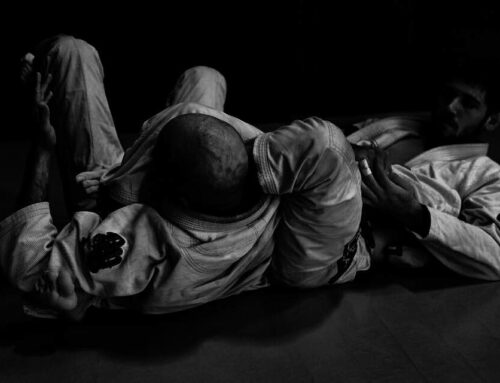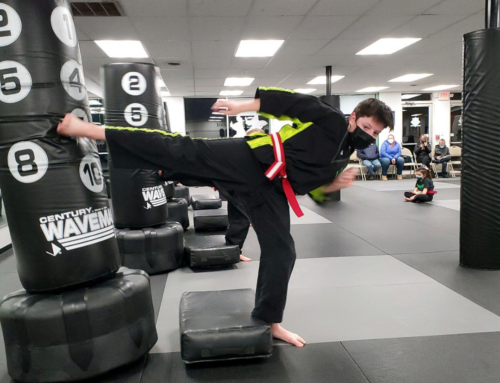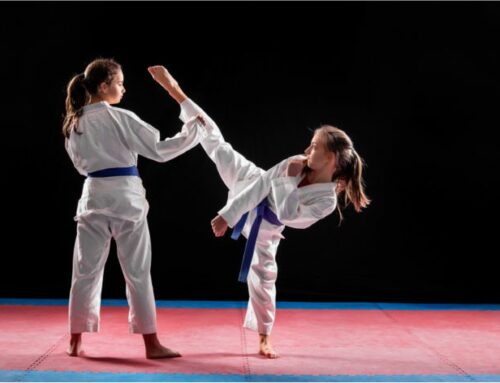Brazilian Jiu-Jitsu (BJJ) is a martial art that focuses on grappling and ground fighting. It was developed in Brazil in the early 20th century by Japanese immigrant Mitsuo Maeda. BJJ is often taught in a self-defense context and is known for its effectiveness in mixed martial arts (MMA) competition.
BJJ promotes the concept that a smaller, weaker person can successfully defend themselves against a bigger, stronger assailant by using proper technique, leverage, and body positioning. BJJ training can be used for sport grappling tournaments (gi and no-gi) and submission wrestling (no-gi), self-defense, and mixed martial arts (MMA).
The Origins of Brazilian Jiu-Jitsu
Brazilian Jiu-Jitsu traces its roots back to the Japanese martial art of Kodokan Judo, which was itself developed from several traditional Japanese jujutsu schools. Judo was brought to Brazil in 1914 by Mitsuyo Maeda, a Kodokan Judo black belt who was also a pioneer of Brazilian Jiu-Jitsu.
Maeda was a small man, standing only 5’5” and weighing around 155 pounds. He was often challenged to matches by much larger opponents, and to level the playing field, he developed his own style of Judo that focused on using an opponent’s weight and strength against them. This style became known as “Brazilian Jiu-Jitsu.”
Maeda taught his new style of Jiu-Jitsu to the Gracie family, who eventually opened their own Jiu-Jitsu academy in 1925. The Gracie family is widely credited with popularizing Brazilian Jiu-Jitsu, and their academy became the birthplace of what is now known as “Gracie Jiu-Jitsu.”
The Gracie brothers, particularly Helio Gracie, further developed Maeda’s style of Jiu-Jitsu and refined it to be more effective in real-world self-defense situations. They also emphasized the importance of using techniques that would not rely on size and strength, making Gracie Jiu-Jitsu an ideal martial art for smaller and weaker individuals.
The Gracie brothers would go on to promote Brazilian Jiu-Jitsu through a series of high-profile challenge matches, which helped to spread the popularity of the art. In 1993, the Gracie family founded the Ultimate Fighting Championship (UFC), which is now the largest MMA promotion in the world.
BJJ Today
In the years since the Gracie brothers introduced Brazilian Jiu-Jitsu to the world, the art has continued to grow in popularity. Today, BJJ is practiced by hundreds of thousands of people in countries all over the world. It has also become a major part of MMA competitions, and many MMA fighters have made the transition from traditional martial arts to BJJ.
In addition to its popularity in MMA, Brazilian Jiu-Jitsu is also a major part of law enforcement and military training. Many police departments and military units have added BJJ to their standard training to provide their personnel with an additional skill set.
Conclusion
Brazilian Jiu-Jitsu is a martial art and combat sport that originated in Brazil in the 1920s. It is a grappling-based art that emphasizes ground fighting and submission holds, and it has become one of the most popular martial arts in the world.
The history of Brazilian Jiu-Jitsu is a long and varied one, and it is a fascinating story of how this art has developed and evolved over the years. This comprehensive guide has provided an overview of the history of Brazilian Jiu-Jitsu, from its origins in Brazil to its present-day popularity.
Brazilian Jiu-Jitsu is a martial art that has something to offer everyone, regardless of their age, gender, or physical ability. If you are interested in learning more about this art, or if you are simply curious about its history, this guide has provided a wealth of information.
Pride Martial Arts Academy is a black belt school that motivates, inspires, and coaches individuals who have the passion for using martial arts to transform their lives positively. We hold adult and youth MMA programs, Jury Jiu-Jitsu, as well as kickboxing and BJJ classes in Clarence, NY. If you’re looking for an MMA or kickboxing school offering various programs, then Pride Martial Arts is the place for you. Contact us today to initiate a free trial!






